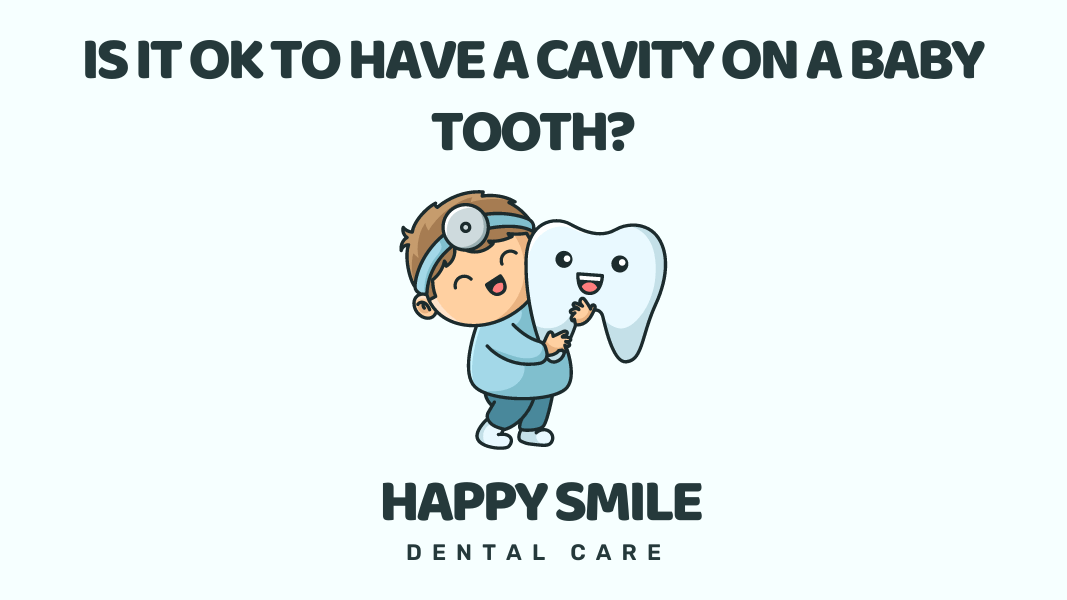
When children develop cavities, it presents a common dilemma for parents: Considering baby teeth will eventually fall out, is it actually worthwhile to fill these cavities? The prevailing advice from pediatric dentistry suggests the answer is mostly “yes,” but with a few exceptions worth noting.
When Will a Cavity Not Require Filling?
There are certain scenarios where a cavities on baby teeth might not necessitate a filling. For instance, a very minor cavity has the potential to heal on its own.
In such cases, a dentist might recommend enhanced oral hygiene practices or a diet benefiting dental health to prevent the cavity from enlarging.
Likewise, if a tooth is on the cusp of naturally falling out and the cavity does not pose a significant risk for spreading bacteria to adjacent teeth or tissue, and isn’t causing discomfort, it might be permissible to simply wait for the tooth to fall out on its own.
Do Cavities on Baby Tooth Really Need to be Filled?
The presence of cavities—or caries—in your child’s primary teeth should be taken as seriously as those in adult teeth, necessitating prompt action to seek dental consultation for proper diagnosis and treatment.
Generally speaking, fillings for your child’s primary teeth are often as crucial as those for permanent teeth for several pivotal reasons:
- Pain and Discomfort: Untreated cavities can cause significant discomfort or pain for your child.
- Potential for Further Dental Issues: Left unaddressed, cavities can lead to more severe dental problems, including infections.
- Overall Health Impacts: Dental health in children not only pertains to their mouths but also affects broader biological systems and general health.
- Indicative of Larger Concerns: The occurrence of cavities might indicate underlying problems such as poor diet or inadequate dental hygiene practices.
- Predictor of Future Dental Health: Neglecting dental care in early childhood can foreshadow subpar dental hygiene practices in later life.
- Functional Necessity: Healthy teeth are essential for key functions including eating and speaking.
Identifying Baby Teeth Cavities
Children with cavities might report toothaches or sensitivity to hot, cold, or sweet foods and drinks. Visible signs such as holes, pits, or discoloration (brown, black, or white stains) on the tooth can also indicate cavity presence.
However, since some children may not manifest these signs, regular dental check-ups are crucial. Encouraging consistent at-home dental care practices, including regular brushing and flossing, along with minimizing the intake of sugary snacks, is equally important.
How to Prevent Cavities in Baby Teeth
As the old adage goes, “An ounce of prevention is worth a pound of cure.”
The following are some practices to help prevent cavities in your child’s baby teeth:
- Brushing: Clean your child’s teeth at least twice per day with water or toothpaste containing fluoride. Brushing should be supervised until they can do it independently.
- Flossing: Flossing aids in removing plaque and food particles between teeth, which can lead to cavities if left unaddressed.
- Dietary Habits: Encourage a healthy, balanced diet with limited sugary snacks and beverages. Also, discourage prolonged exposure to sugary foods or drinks.
- Fluoride Treatment: Fluoride can help prevent cavities and strengthen teeth. Consult with your dentist on fluoride treatments that might be beneficial for your child.
- Regular Dental Check-Ups: Schedule regular dental check-ups for your child, as recommended by their dentist. Early detection of cavities or other dental issues allows for prompt treatment before they worsen.
Conclusion
While it may seem logical to dismiss cavities on baby teeth, the ramifications of ignoring them can be significant. Proper dental care and prompt treatment for cavities in primary teeth are essential for ensuring healthy adult teeth later on.
By instilling good dental hygiene practices early on, parents can help their children maintain healthy smiles for years to come. So, don’t delay – seek dental consultation as soon as you suspect your child may have a cavity on their baby tooth. Remember, prevention is always better than cure.
References:
https://www.healthline.com/health/childrens-health/cavities-in-kids



